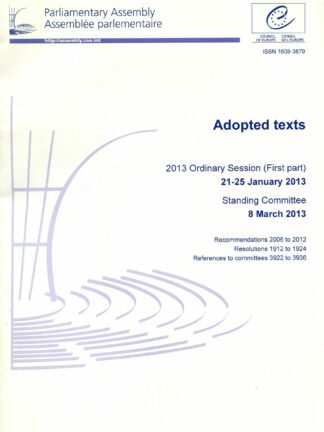Descripción
Youth work, coupled with effective government policies, is invaluable in ensuring that young people are given the opportunity to acquire the knowledge, skills and attitudes they need for civic engagement and social action.
Youth work is experiencing a policy momentum at European level. Since the adoption of a resolution on the subject by the Committee of Ministers of the Council of Europe in 2017, youth work is back on the core agenda of the Council of Europe and the European Union youth strategies.
This book looks at how youth work practitioners learn their trade, what formal and non-formal education offers exist and how education is contextualised in the broader picture of youth work recognition. Starting with the premise that formal education entails a series of steps from which youth work practitioners would benefit, this books explores that picture through a mapping study and delves further into its findings through thematic contributions.
The results of the research and debates with policy makers, researchers, practitioners, educators and other stakeholders identifies a field of growing opportunities across Europe. The situation of youth workers in different countries varies from advanced practice architectures for youth worker education to those in need of development. Youth worker education, however, is not only about the education and training offers, it is also about financial and organisational resources, legislation, support systems, competence frameworks, quality standards, ethical frameworks and guidance. This book aims to support youth work so that it becomes more visible and evolves into a recognised field of practice among other occupations and professions engaging with young people.








